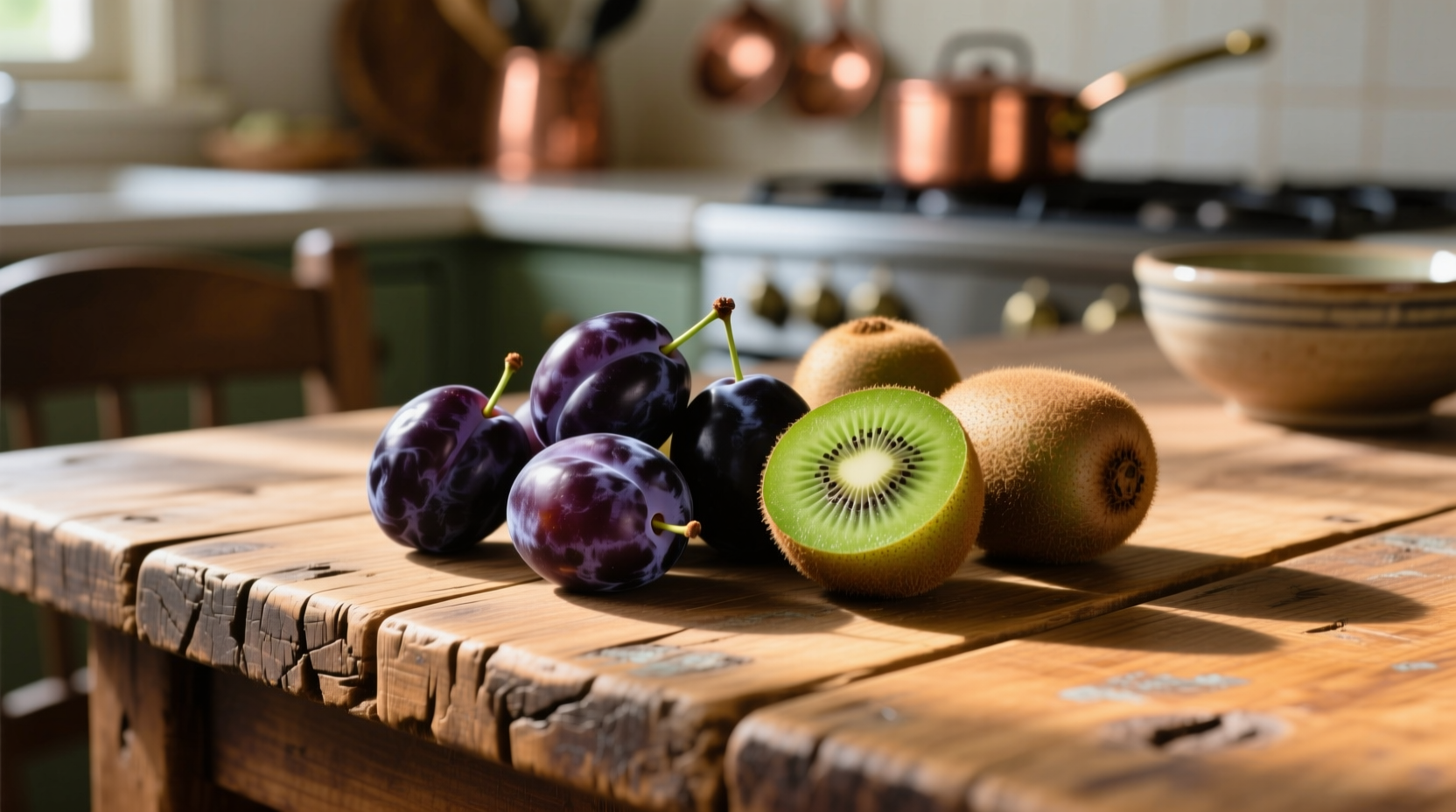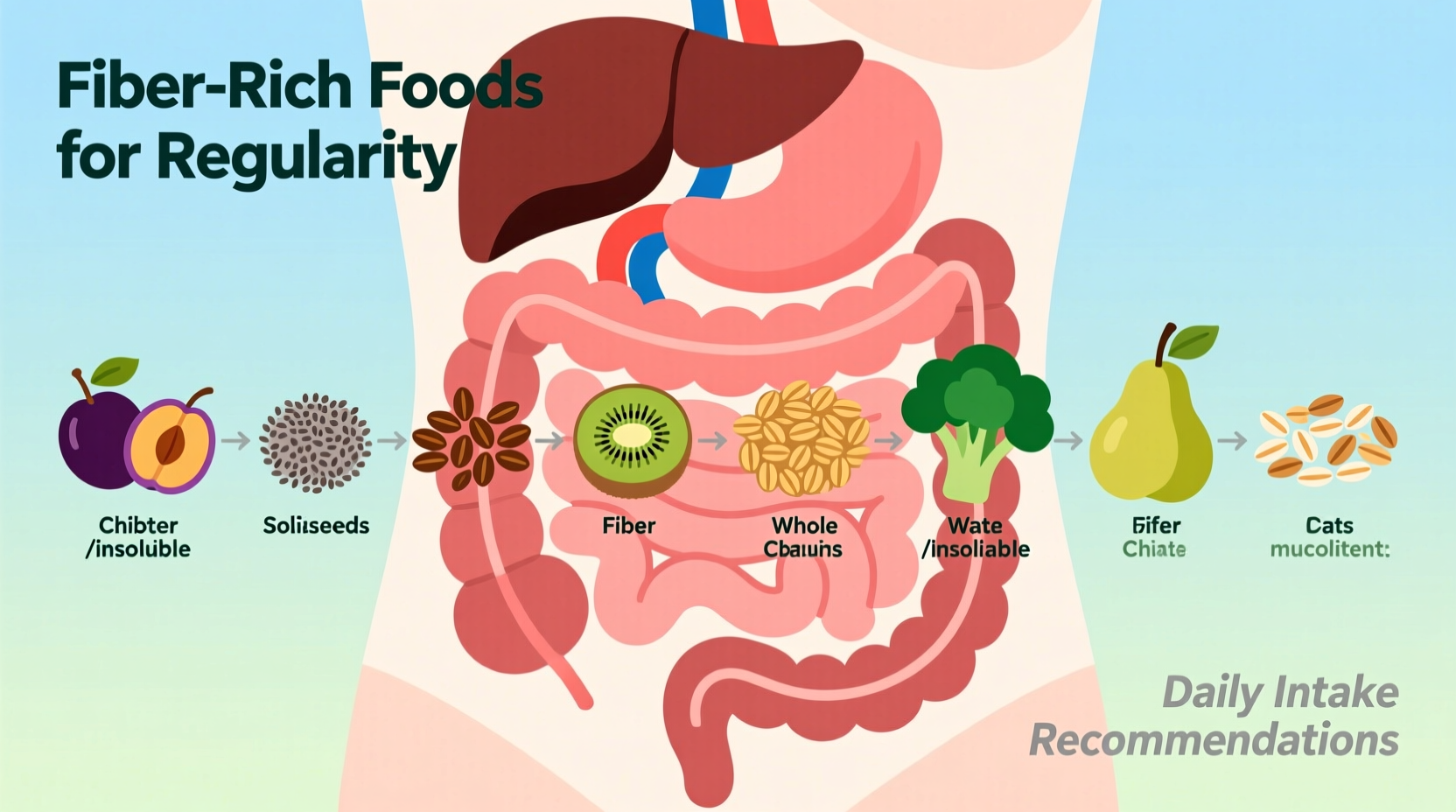Natural Constipation Relief Through Your Diet
When constipation strikes, your kitchen might hold the solution. Unlike laxatives that can cause dependency, dietary approaches provide sustainable relief by addressing the root cause: inadequate fiber and hydration. This guide details exactly which foods work, how they function, and how to incorporate them effectively into your routine.
Why Fiber-Rich Foods Relieve Constipation
Constipation occurs when stool moves too slowly through the colon, allowing excess water absorption that hardens stool. Dietary fiber adds bulk and retains water in the digestive tract, creating softer, larger stools that stimulate natural bowel contractions. The National Institute of Diabetes and Digestive and Kidney Diseases confirms that increasing fiber intake is among the most effective first-line approaches for occasional constipation.
Top 7 Constipation-Relieving Foods (With Science-Backed Dosage)
1. Prunes: Nature's Gentle Laxative
Prunes contain both soluble and insoluble fiber plus sorbitol, a natural sugar alcohol with mild osmotic effects. A 2014 clinical study found that consuming 50g of prunes (about 7 medium prunes) twice daily significantly improved stool frequency and consistency compared to psyllium fiber supplements.
2. Chia Seeds: The Hydration Powerhouse
These tiny seeds absorb up to 12 times their weight in water, forming a gel that softens stool. Just 1 ounce (28g) provides 11g of fiber. For best results, soak chia seeds in water for 15 minutes before consumption to prevent potential blockages in dehydrated individuals.
3. Kiwi: The Triple-Action Fruit
Kiwis work through three mechanisms: fiber content (2.1g per medium fruit), actinidin enzyme that aids protein digestion, and natural laxative compounds. Research published in Advances in Nutrition showed that eating two kiwis daily increased bowel movement frequency by 1.5 times compared to placebo.
4. Flaxseeds: Omega-3 Rich Relief
Ground flaxseeds provide both fiber (2.8g per tablespoon) and omega-3 fatty acids that reduce gut inflammation. Always consume ground flaxseeds with adequate water, as whole seeds may pass through undigested. Start with 1 tablespoon daily and gradually increase to avoid gas.
| Food | Fiber per Serving | Key Active Components | Time to Effect |
|---|---|---|---|
| Prunes (50g) | 3.2g | Sorbitol, dihydrophenylisatin | 6-12 hours |
| Chia seeds (1oz) | 11g | Soluble fiber, mucilage | 12-24 hours |
| Kiwi (2 medium) | 4.2g | Actinidin, fiber | 18-24 hours |
| Flaxseeds (1 tbsp) | 2.8g | Lignans, omega-3s | 24-48 hours |
Expected Timeline for Relief
Understanding when to expect results prevents unnecessary concern. Dietary changes typically follow this progression:
- First 6-12 hours: Prunes and kiwi begin softening existing stool
- 12-24 hours: Chia seeds and flaxseeds start adding bulk and hydration
- 24-48 hours: Legumes and leafy greens stimulate regular peristalsis
- 3-5 days: Full digestive rhythm normalization with consistent intake
According to the Mayo Clinic, most people experience improvement within 24-72 hours of implementing these dietary changes. If no improvement occurs after 5 days, consult a healthcare provider.
Foods to Avoid During Constipation Episodes
Certain foods can worsen constipation despite seeming healthy:
- Unripe bananas (high in resistant starch)
- Excessive cheese and dairy products
- Processed white bread and pastries
- Red meat in large quantities

Important Context: When Food Alone Isn't Enough
Dietary approaches work for occasional constipation but have limitations:
- Chronic constipation: Lasting more than 3 months may indicate underlying conditions like IBS or hypothyroidism
- Severe dehydration: Without adequate water intake, high-fiber foods can worsen constipation
- Medication interactions: Fiber can reduce absorption of certain medications like thyroid hormone
- Anatomical issues: Structural problems require medical intervention
The American Gastroenterological Association recommends seeking medical advice if you experience:
- No bowel movement for more than 5 days
- Blood in stool
- Unexplained weight loss
- Severe abdominal pain
Maximizing Results: The 3-Step Implementation Plan
- Hydrate first: Drink 8-10 glasses of water before increasing fiber
- Start small: Begin with 1-2 servings of constipation-relieving foods daily
- Gradual increase: Add one additional serving every 2-3 days until reaching target fiber intake
This approach prevents common side effects like gas and bloating. The Academy of Nutrition and Dietetics recommends women consume 25g and men 38g of fiber daily for optimal digestive health.
Conclusion: Sustainable Relief Through Smart Eating
While occasional constipation affects nearly everyone, the right foods provide gentle, effective relief without medication dependency. By understanding which foods work, how much to consume, and when to expect results, you can take control of your digestive health naturally. Remember that consistency matters more than any single food—incorporating these options into your regular diet creates lasting digestive wellness.











 浙公网安备
33010002000092号
浙公网安备
33010002000092号 浙B2-20120091-4
浙B2-20120091-4